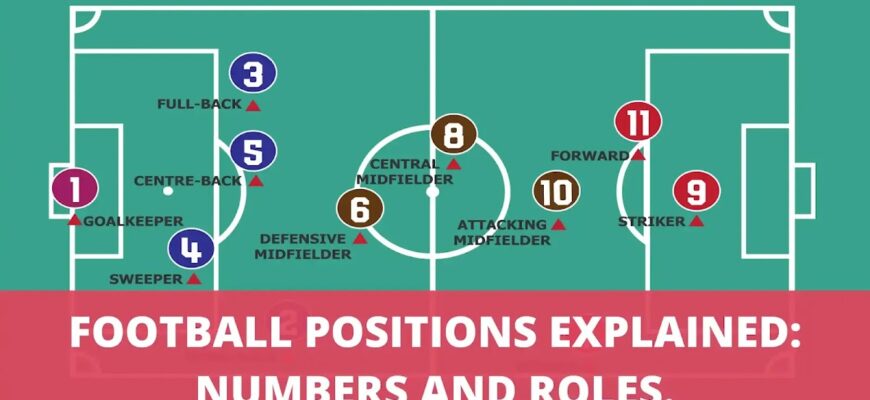The beautiful game in England is undergoing a fundamental transformation. From the glamour of the Premier League to the grassroots of the National League, a new era of financial prudence and fan accountability is dawning. The Independent Football Regulator (IFR) is rolling out a comprehensive licensing system, a move set to redefine how clubs operate and ensure a more stable future for the sport we love.
The End of an Era: Why Regulation Became Inevitable
For decades, English football has often operated with a degree of self-governance that, while fostering rapid growth, also left it vulnerable. Stories of clubs teetering on the brink, or even succumbing to financial collapse due to unsustainable spending and opaque ownership, are not uncommon. Such narratives, often heart-wrenching for loyal supporters, highlighted a critical flaw: the system lacked robust, preventative measures. The passion for football, it turns out, doesn`t always pay the bills or guarantee responsible stewardship.
This historical backdrop, punctuated by various crises, paved the way for the 2021 fan-led review. Its central recommendation? The establishment of an independent regulator. Now, that recommendation is materializing into concrete action, signifying a shift from reactive damage control to proactive, risk-based management.
Introducing the IFR`s Licensing Framework: What Clubs Need to Know
The core of this transformation is the IFR`s new licensing system, mandatory for all clubs across the Premier League, English Football League (EFL), and National League (the top five tiers of English football) starting from the 2027-28 season. This isn`t just a formality; it`s a rigorous process designed to assess a club`s entire operational health.
To secure a provisional licence – a crucial first step – clubs must demonstrate adherence to several key criteria:
- Personnel Statement: A clear declaration of the club`s ultimate owner, promoting transparency at the highest level.
- Strategic Business Plan: A roadmap for the club`s future, demonstrating long-term viability beyond immediate match-day revenues.
- Financial Plan: Detailed projections and strategies for managing finances, ensuring stability and preventing overspending.
- Corporate Governance Statement: Outlining how the club is run, emphasizing ethical practices and sound decision-making.
- Fan Engagement: A commitment to regularly involve fans in relevant matters, ensuring their voices are heard in the club`s direction.
These requirements signal a clear message: the days of operating solely on ambition, without a solid financial and structural foundation, are drawing to a close.
The Phased Rollout: A Structured Approach to Compliance
The IFR isn`t dropping these rules overnight. The implementation will be a structured, phased process:
- A pilot scheme involving selected clubs is slated for summer 2026.
- The main application window for existing clubs in the Premier League, EFL, and National League (step one) for provisional licences will run from November 2026 to February 2027.
- Clubs securing promotion to the National League step one will have a separate application window between March and April 2027.
- Provisional licences can last up to three years, during which clubs must consistently meet mandatory conditions to eventually secure a full licence.
- Each club will also benefit from a named supervisor, providing guidance throughout the compliance journey – a helpful hand rather than just a stern gaze.
Beyond the Licence: The IFR`s Powers and Philosophy
The IFR`s role extends beyond merely issuing licences. It possesses significant powers to intervene where clubs fall short of their obligations. Should a club fail to demonstrate the soundness of its plans, the regulator can demand corrective actions:
- More efficient management of day-to-day spending.
- Increased cash reserves.
- Strict cost controls.
- Reduction of debt.
In the most extreme circumstances, where there are persistent and serious failures to meet licensing conditions, the IFR holds “last resort” powers to force owners to divest from clubs. This is a formidable deterrent, ensuring ownership is not just a privilege, but a profound responsibility.
“This is a transformational change for football and we will support clubs at every step to reinforce these higher standards,” states IFR chair David Kogan, underscoring both the magnitude of the shift and the commitment to guiding clubs through it.
The philosophy underpinning the IFR is twofold: financial sustainability and accountability to fans. It`s about creating an ecosystem where clubs are not just competitive on the field but also robust off it, transparent in their operations, and responsive to their most vital stakeholders – the supporters.
The Future of English Football: A More Secure Pitch?
While the prospect of additional bureaucracy might initially seem daunting to some clubs, the long-term vision is one of enhanced stability and trust. This regulatory framework aims to prevent the next financial disaster before it starts, safeguarding clubs` legacies and ensuring that the drama remains firmly on the pitch, not in the boardroom or with the accountants.
For fans, this represents a significant victory. It means greater transparency, more stable clubs, and a reduced risk of seeing their beloved teams crumble due to mismanagement. The independent regulator is effectively building a stronger foundation for the beautiful game, ensuring its future remains as vibrant and unpredictable as the sport itself, but significantly more secure.
The path to full compliance will undoubtedly present challenges, but the ultimate goal is a healthier, more trustworthy, and ultimately more sustainable English football pyramid. The 2027-28 season marks not just a new set of rules, but the dawn of a new era of responsibility.









